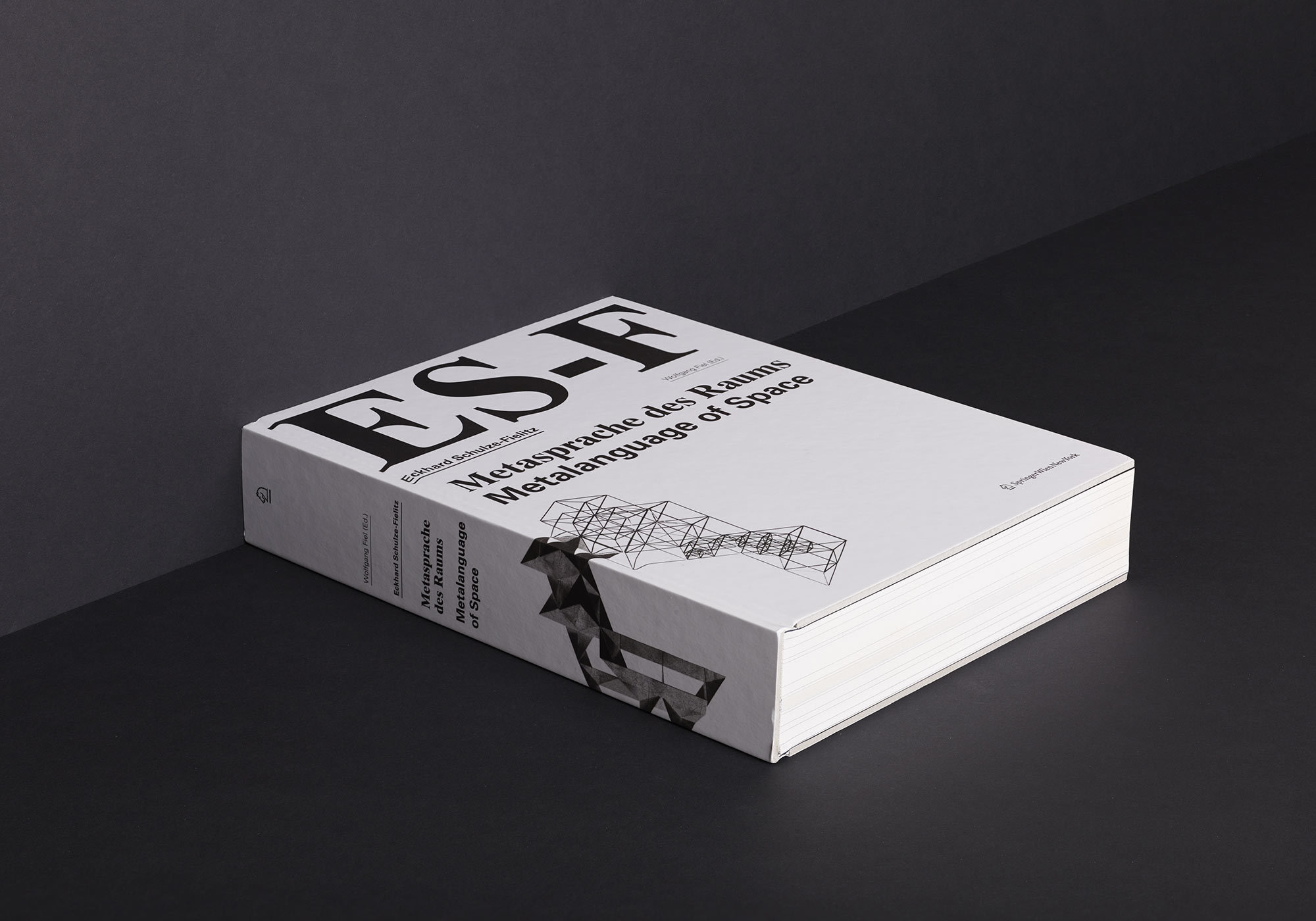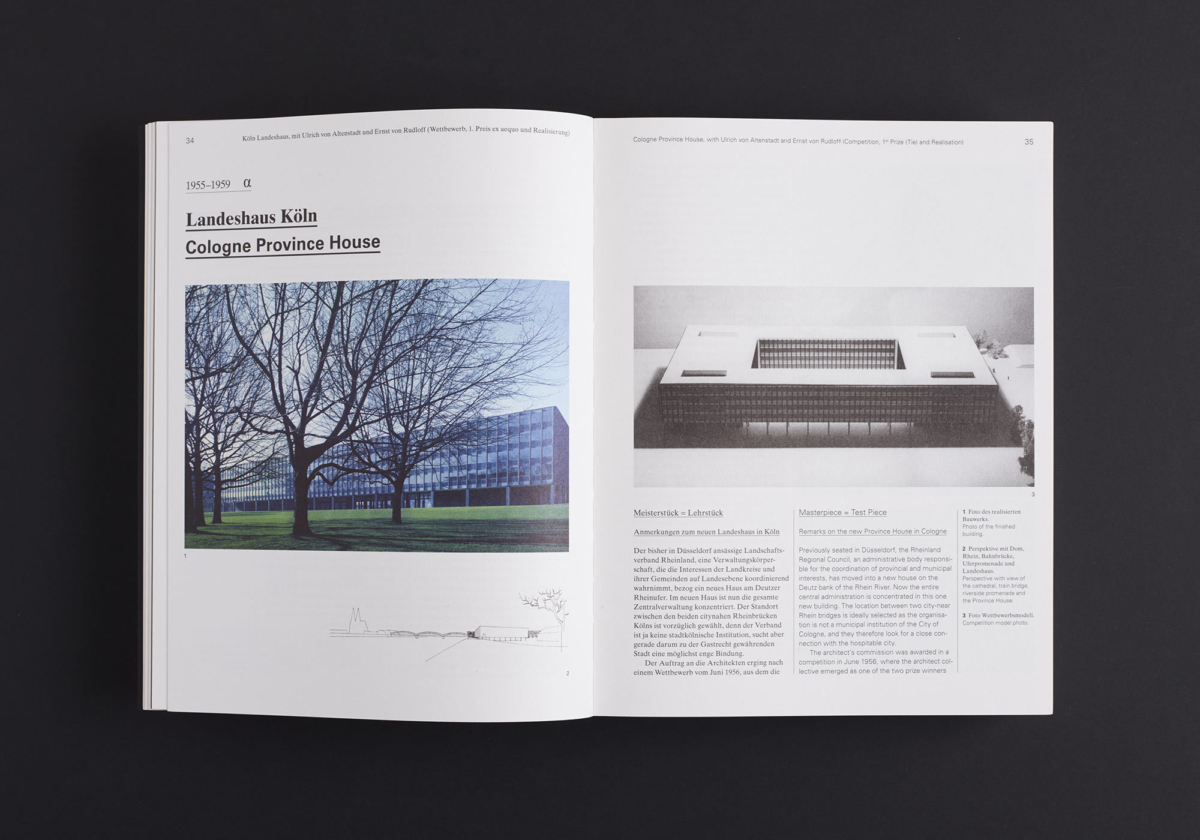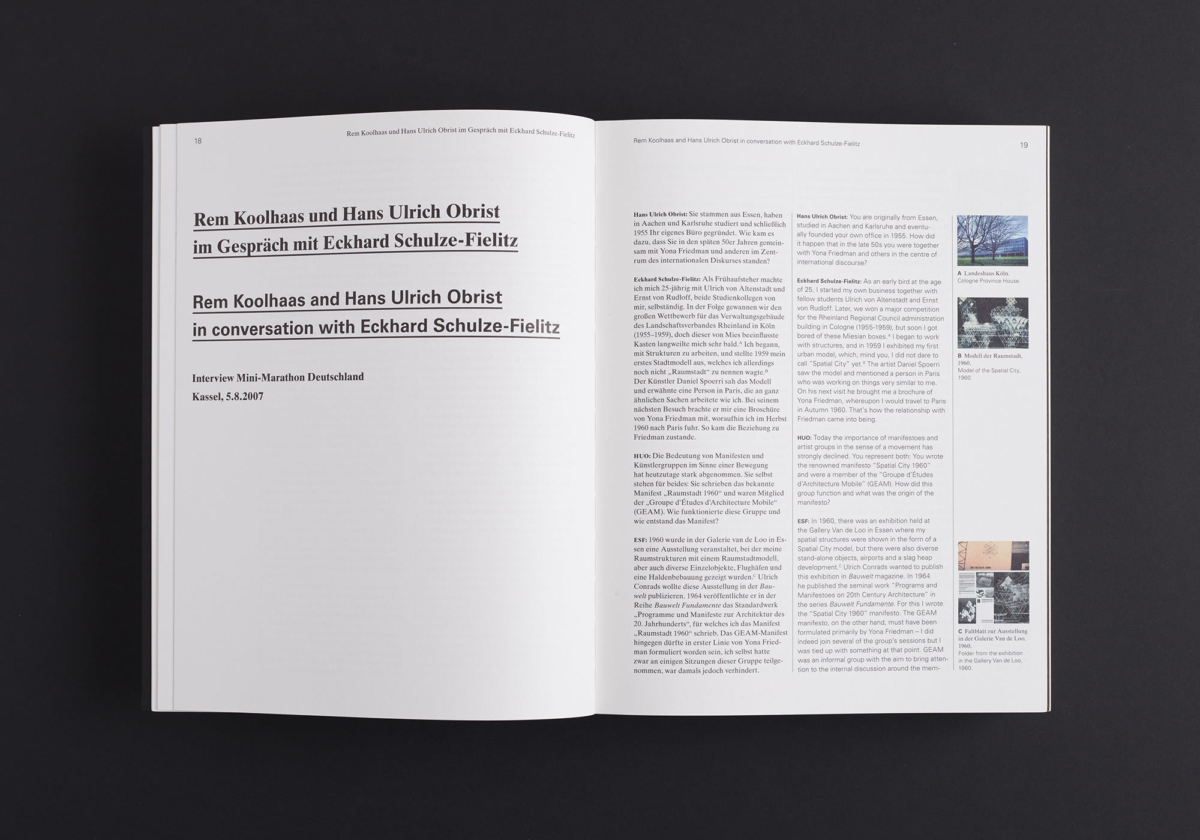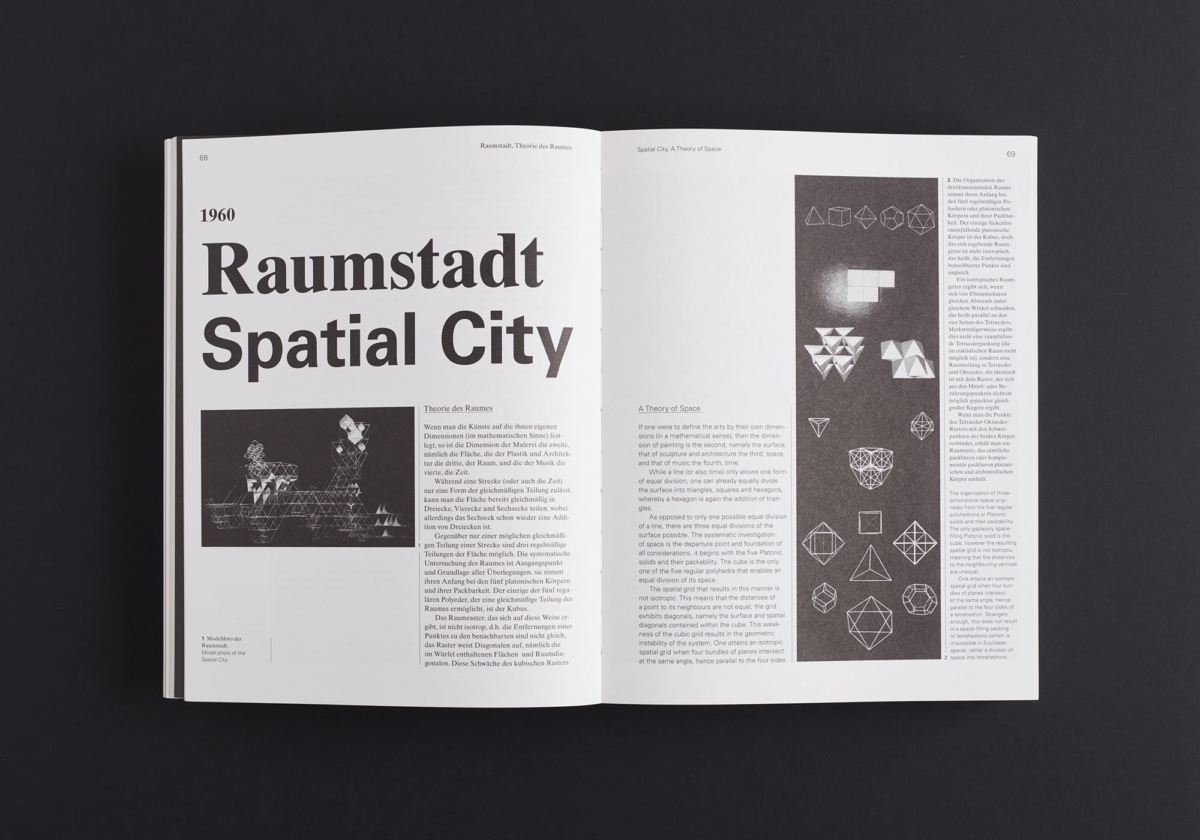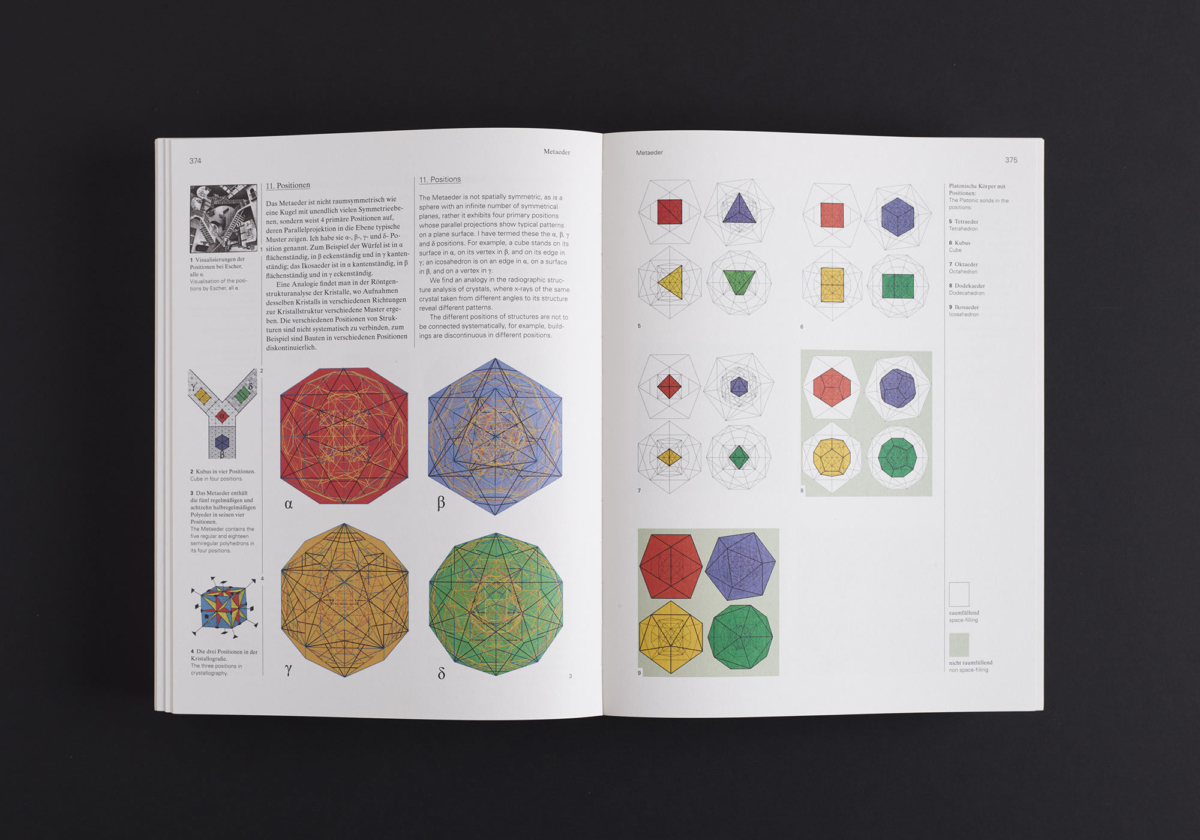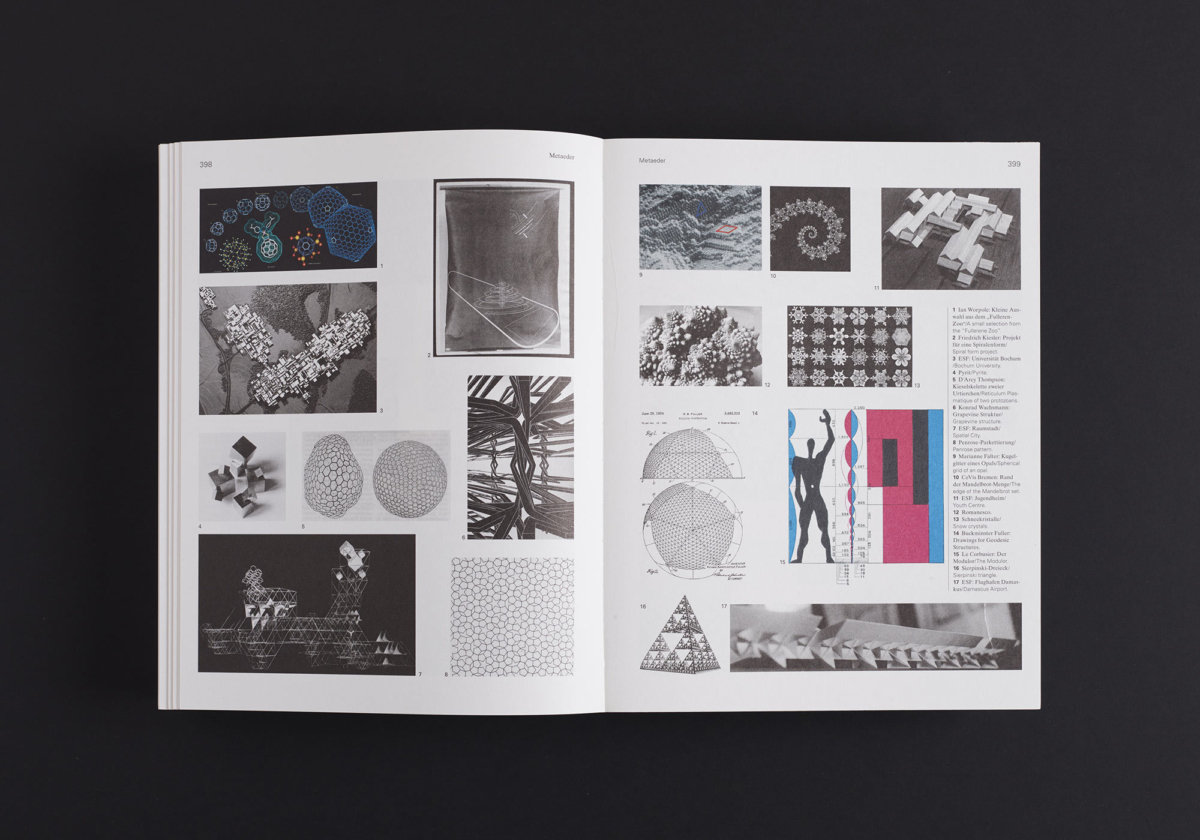With this publication, a comprehensive overview of the work of the architect and urbanist Eckhard Schulze-Fielitz, born in 1929 in Stettin (today Szczecin, Poland), is presented to a broader audience for the first time.
The exhibition of his first Spatial City model in 1960 marked the beginning of Schulze-Fielitz’s search for a new spatial ordering system. In analogy to a hypothetical model in physics, it consisted of a macromaterial capable of modulations, made up of a small number of elementary particles, and could be extended in all desired directions according to a precise law of composition. The “geometric nucleus” of his Spatial City he called Metaeder.
In 1961 he joined GEAM, Groupe d’Études d’Architecture Mobile. A preoccupation with rapid urban growth and its effects on society, and investigations into the practical application of his urban systems led to concrete proposals for city and housing designs based on adaptable spatial infrastructures, ecological sustainability and the participation of the users.
In addition to his built works, projects, studies and texts, this book also contains contributions from Peter G. Auer, Wolfgang Fiel, Yona Friedman, Rem Koolhaas, and Hans Ulrich Obrist.
